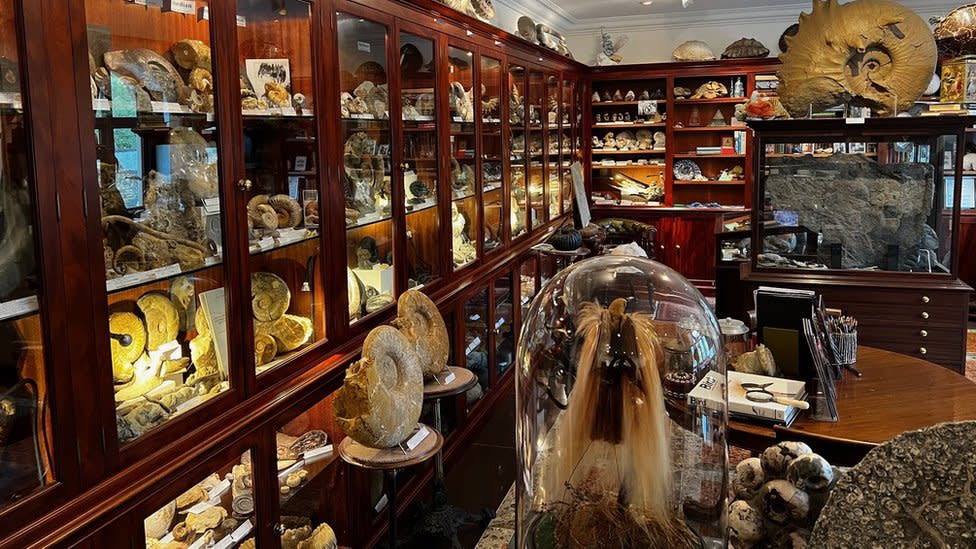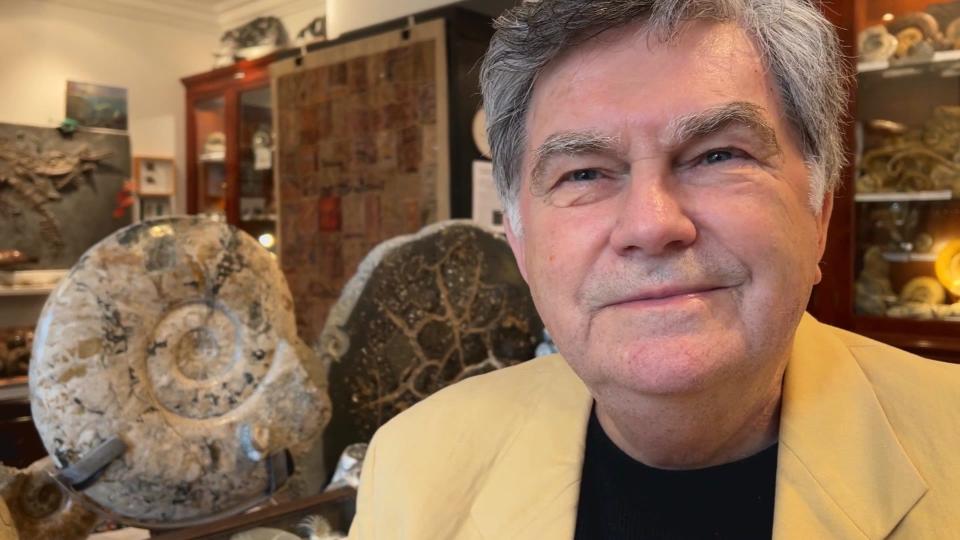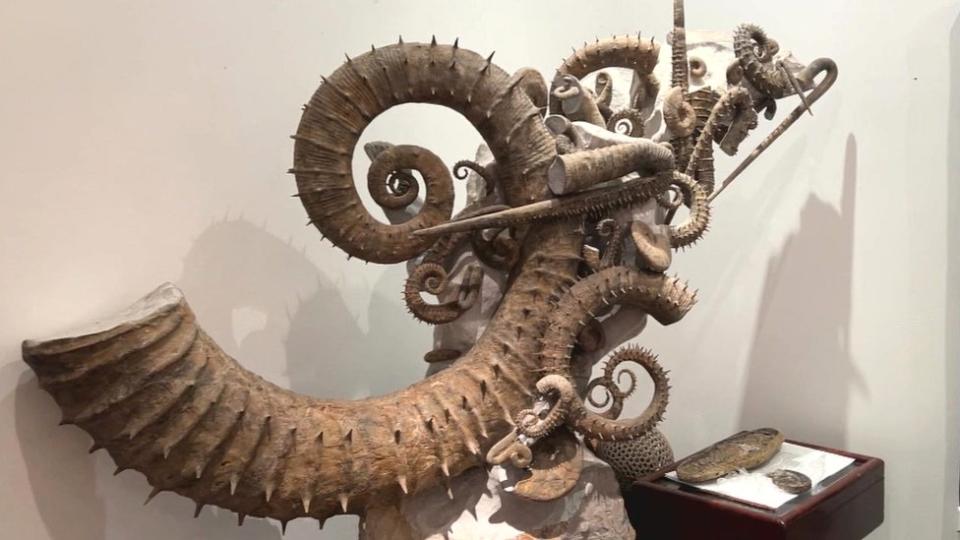Wolfgang Grulke: Fossils collected over 50 years to be sold

A collector who has amassed thousands of rare fossils that he displays in a private museum is in talks to sell his "cabinet of curiosities".
Wolfgang Grulke has been buying and conserving prehistoric artefacts, which he keeps in a converted barn near Sherborne, Dorset, for 50 years.
Now he wants to find them a new home, before he turns 80 in two years' time.
Mr Grulke says he wants the collection to go to a place where "people will be astonished and fuel their curiosity".
It was half a century ago that Mr Grulke, who at the time knew nothing about fossils, was "enticed" to visit Lyme Regis by a fossil-hunting friend.

He said: "That evening, over a beer, we discussed our finds with some of the locals and they introduced me to the idea of Mary Anning - a young person in her teens and twenties - collecting fossils and becoming world famous."
The conversation would spark a lifelong passion and Mr Grulke spent the next five decades building his multimillion-pound collection, which has received some notable visitors, including Sir David Attenborough.
Artefacts include the world's largest uncoiled ammonite, an entire ichthyosaur skeleton, and huge clusters of marine fossils that were discovered high in the Alps.

"What you are looking at here is the history of life on earth," said Mr Grulke.
"You've got this back wall of cabinets which has fossils from 500 million years ago, to the time that ammonites died out with the dinosaurs 66 million years ago.
"My ideal future is that this collection continues to be a cabinet of curiosities rather than an individual display of fossils in a museum.
"Obviously, I'd love it to stay in Dorset, even though it represents fossils from all over the world, but there has been a lot of interest from international museums as well."
Follow BBC South on Facebook, X, or Instagram. Send your story ideas to south.newsonline@bbc.co.uk or via WhatsApp on 0808 100 2240.


